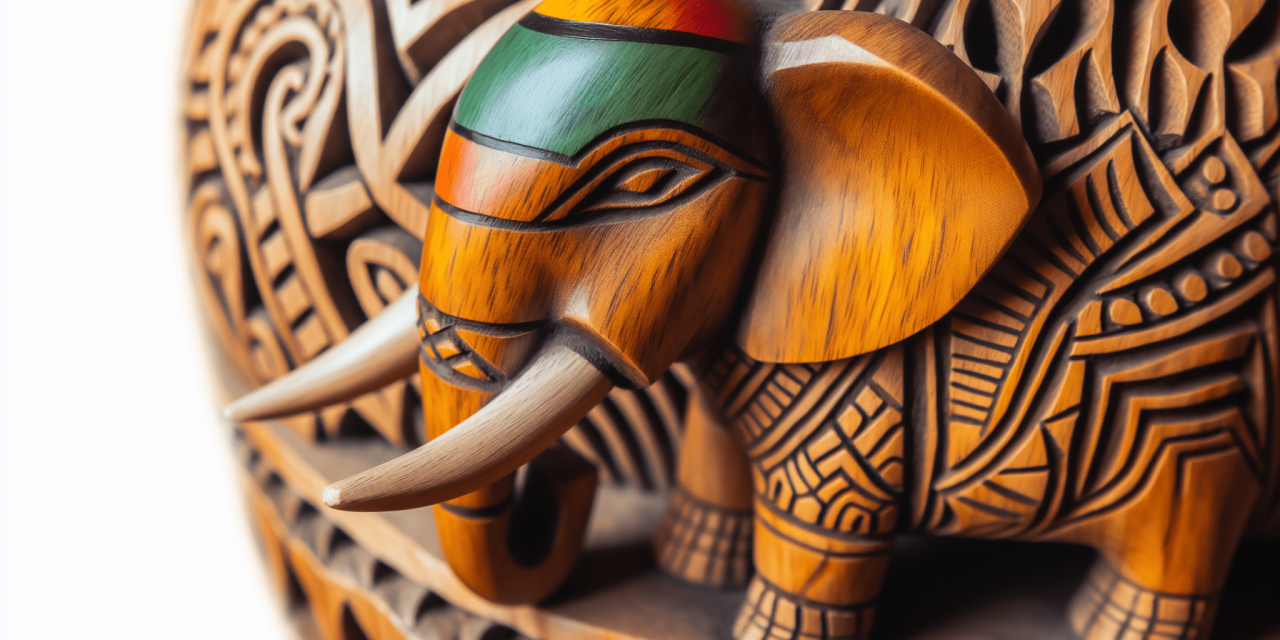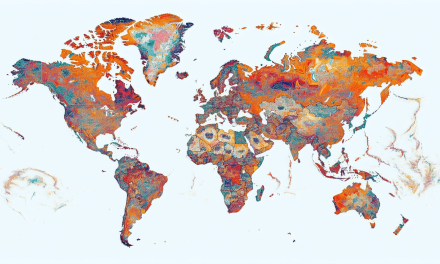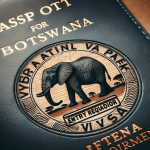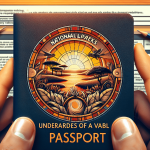So you find yourself in the beautiful country of Zambia, ready to explore its vibrant culture and breathtaking landscapes. As you embark on your journey, it’s important to familiarize yourself with the local customs, including the proper tipping etiquette. Understanding how much to tip and when to do so can help you show appreciation for excellent service while respecting the local customs and traditions. In this article, we will guide you through the ins and outs of tipping in Zambia, ensuring you have a smooth and enjoyable experience during your visit.
Customs and Traditions
Importance of etiquette in Zambia
In Zambia, etiquette plays a vital role in social interactions and is highly valued. Proper manners and respect for others are deeply ingrained in the culture. It is essential to be mindful of Zambian customs and traditions to ensure you make a positive impression.
Greeting customs
When greeting in Zambia, it is customary to offer a warm and friendly handshake. A firm handshake with direct eye contact demonstrates respect and sincerity. Additionally, it is polite to greet someone with their proper title or use “Mr.” or “Mrs.” followed by their last name.
Respect for elders
In Zambian society, respect for elders is deeply rooted. It is customary to show deference and honor to older individuals. When interacting with elders, use polite language and avoid interrupting them. Paying attention and listening attentively to their stories and advice conveys your respect.
Social interactions
Zambians place value on personal relationships and community. Engaging in polite small talk and showing genuine interest in others’ lives is highly appreciated. It is customary to address someone by their name or use appropriate titles when engaged in conversation. Politeness, warmth, and a friendly demeanor are key to successful social interactions in Zambia.
Tipping Culture
Tipping expectations in Zambia
Tipping is widely practiced in Zambia and is viewed as a way to show appreciation for good service. While tipping is not mandatory, it is considered customary, especially in the service industry. Most locals and tourists alike engage in tipping as a way to recognize and reward exceptional service.
Widespread practice
Tipping is prevalent across various sectors in Zambia, including hospitality, tourism, transportation, and more. It is an ingrained part of the culture, and service providers often rely on tips as part of their income. Understanding the tipping customs in different settings is crucial to ensure you contribute appropriately.
Tipping in different settings
In Zambia, tips are expected in settings such as hotels, restaurants, bars, spas, and transportation services. It is customary to show your appreciation by leaving a tip when you receive satisfactory service. The amount may vary depending on the type of establishment and the level of service provided.
Common tipping amounts
When tipping in Zambia, it is customary to give around 10% to 15% of the total bill as a gratuity. However, the amount can be adjusted based on the level of service received, with the option to tip more for exceptional service. In some upscale establishments, a service charge may already be included in the bill, so it is worth considering this before adding an additional tip.
Hotels and Accommodation
Tipping hotel staff
In the hotel industry, it is customary to tip hotel staff who provide individualized services. This includes bellboys, porters, and housekeeping staff. Tipping is a gesture of appreciation for their assistance and ensures a comfortable and enjoyable stay.
Bellboys and porters
When a bellboy or porter assists you with your luggage upon arrival or departure, it is customary to tip them around 5 to 10 Kwacha per bag. This amount can be adjusted based on the weight and size of the bags, as well as the level of assistance provided.
Housekeeping staff
To show gratitude for the housekeeping staff’s efforts in maintaining cleanliness and tidiness during your stay, it is customary to leave a tip of around 10 to 20 Kwacha per day. Leaving this tip daily ensures that it reaches the staff directly responsible for your room.
Restaurant and bar staff
When dining at a hotel restaurant or enjoying a drink at the bar, it is customary to leave a tip for the waitstaff. A gratuity of around 10 to 15% of the total bill is customary, similar to the tipping practice in standalone restaurants. However, it is always advisable to check if a service charge has already been included before adding an additional tip.
Restaurants and Cafes
Tipping waitstaff
Tipping waitstaff at restaurants and cafes in Zambia is considered customary. It is a way to recognize the quality of service provided and show appreciation for the staff’s efforts. Leaving a gratuity is a common practice and should be considered as an essential part of dining out.
Understanding service charge
Before adding an additional tip, it is important to check if a service charge has already been included in the bill. Some establishments may have a predetermined service charge, typically around 10%. In such cases, an additional tip may not be required unless you feel the service exceeded your expectations.
Etiquette for buffet service
In buffet-style restaurants or cafes, tipping is not generally expected unless there is individualized service provided, such as drink refills or special requests. However, if a waiter or waitress has gone above and beyond to ensure your dining experience is exceptional, feel free to leave a small tip as a token of your appreciation.
Tipping in upscale establishments
When dining at upscale restaurants or establishments with higher price points, it is customary to tip between 10% to 15% of the total bill. Upscale establishments often provide a higher level of service and attention to detail, making a gratuity an appropriate way to acknowledge the staff’s efforts.
Transportation
Taxis and rideshare services
In Zambia, it is not common to tip taxi or rideshare drivers. However, if a driver provides exceptional service, such as going out of their way to find a specific location or offering additional assistance, a small gratuity is a thoughtful gesture to recognize their efforts.
Tipping tour guides and drivers
When hiring a tour guide or driver for excursions or sightseeing, it is customary to leave a tip at the end. The amount can vary depending on the length and quality of the tour, typically ranging from 10% to 20% of the total cost. A tip shows appreciation for their knowledge, assistance, and overall experience they provided.
Airport services
At airports, it is not customary to tip airport staff, including security personnel and baggage handlers. However, if an airport porter assists you with your luggage and provides significant help, it is courteous to offer a tip of around 10 to 15 Kwacha per bag as a gesture of gratitude.
Public transportation
When using public transportation, such as buses or minibusses, tipping is not expected or customary. However, if someone goes out of their way to assist you or provides valuable guidance, a small tip can be given as a sign of appreciation.
Tourism and Safari
Tipping safari guides and trackers
When participating in a safari, it is customary to tip safari guides and trackers as they play a crucial role in ensuring an unforgettable experience. A suggested tip amount is around $10 to $20 per day per person, depending on the length and quality of the safari. This gratuity recognizes their expertise, knowledge of wildlife, and commitment to your safety.
Camp and lodge staff
In safari camps and lodges, tipping the camp staff is a customary practice. This includes housekeeping staff, cooking and serving staff, and other camp personnel. Guidelines for tipping camp staff typically suggest $5 to $10 per guest per day, which is pooled and shared among the staff members.
Guidelines for wildlife encounters
When encountering wildlife in Zambia, it is crucial to remember that tipping wildlife guides or rangers is not appropriate and discouraged. Engaging in wildlife encounters should focus on ethical and responsible tourism practices, ensuring the well-being and preservation of the natural habitats and wildlife.
Tipping during cultural tours
If you engage in cultural tours to visit local communities or villages, it is courteous to consider a small donation to the community fund or school fund instead of individual tipping. Such contributions support sustainable development projects and benefit the entire community.
Spa and Wellness Services
Tipping massage therapists
In spas and wellness centers, tipping massage therapists is customary to show appreciation. A gratuity of around 10% to 15% of the total cost of the service is appropriate. However, check if a service charge has already been included before adding an additional tip.
Etiquette for spa treatments
In addition to tipping massage therapists, it is customary to tip other spa staff, such as aestheticians and nail technicians. The amount usually ranges from 10% to 15% of the service cost, although it is advisable to verify if a service charge has already been included in the bill.
Tipping at beauty salons
Similar to spa and wellness services, tipping at beauty salons is customary in Zambia. Hair stylists, makeup artists, and other salon staff may receive a gratuity of around 10% to 15% of the bill. However, if a service charge is already included, an additional tip may not be required.
Tipping at wellness retreats
Wellness retreats often provide a range of services encompassing fitness, yoga, meditation, and more. In these settings, it is customary to tip instructors, trainers, and therapists who provide personal guidance and assistance. A tip of around 10% to 15% of the total cost is a considerate gesture.
Retail and Shopping
Tipping at local markets
Tipping is not customary at local markets in Zambia. However, if a market vendor provides exceptional assistance or personalized service, a small gratuity may be given as a sign of gratitude. This is particularly applicable when vendors assist with carrying purchases or offer additional guidance.
Tipping assistance at malls
In shopping malls, tipping is not expected, especially when it comes to general shopping assistance. However, if you receive exceptional service, such as personalized shopping recommendations or extensive assistance, a small tip as an appreciation of their efforts is a kind gesture.
Jewelry and luxury stores
In jewelry and luxury stores, tipping is not common practice in Zambia. However, if a salesperson goes above and beyond to provide tailored advice, exceptional customer service, or handles complicated transactions, you may consider a small token of appreciation in the form of a tip.
Etiquette for bargaining
Bargaining is an integral part of shopping in local markets in Zambia. While tipping is not customary during the bargaining process, it is essential to engage in fair and respectful negotiations. Bargain responsibly and ensure that both parties are satisfied with the final agreed-upon price.
Miscellaneous Services
Tipping tour operators
Tour operators in Zambia often provide comprehensive services that include transportation, accommodation, and guided tours. While it is not expected to tip tour operators, expressing your appreciation by providing positive feedback or writing a review is a valuable way to acknowledge their efforts.
Tipping at events and performances
When attending events or performances, such as live music concerts or theater shows, tipping is not a common practice in Zambia. However, if you wish to show your appreciation for a particularly outstanding performance or exceptional service at a venue, a small gratuity can be given to individuals like ushers or coat check attendants.
Petty services
For minor services such as opening doors, carrying parcels, or providing directions, tipping is not expected or customary. A polite “thank you” and a smile are sufficient to acknowledge their assistance.
Charity and donation etiquette
Zambia has a strong culture of charitable giving, with numerous organizations working to support various causes. When donating to charities or contributing to fundraising efforts, it is acceptable to provide a generous donation according to your capacity. However, tipping individuals who represent charities directly is not a common practice in Zambia.
In conclusion, understanding the tipping etiquette in Zambia is crucial to ensure respectful and appropriate behavior. Tipping is widely practiced and serves as a way to reward exceptional service. By adhering to these customs and traditions, you can navigate various settings in Zambia with confidence, showing your appreciation for the people who enhance your experiences.












